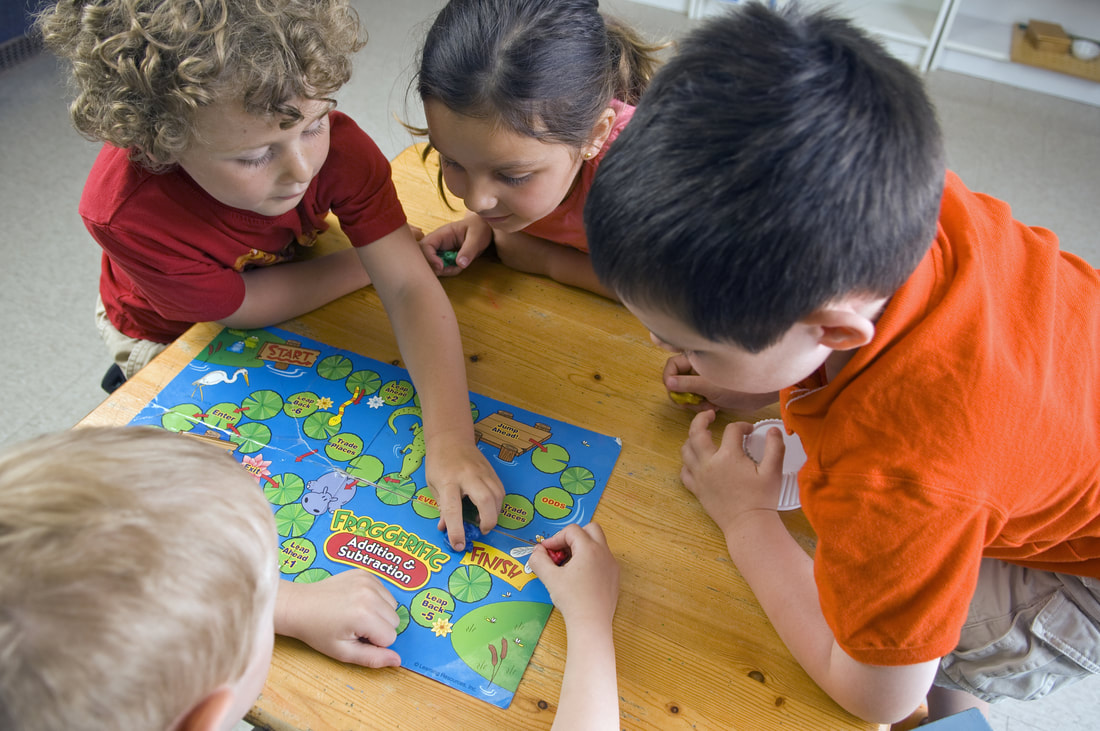5-6 Year Olds: Early School Age Children |
Page 23 |
|
Many five year olds love action games that use up their boundless energy. The school age child has improved their balancing and coordination skills, so they can probably ride a bike (with training wheels), swim, use a skipping rope and play well with a ball. They use their fingers to control a pencil and paintbrush, to dress and undress dolls, and do up their zippers and buttons.
|
By the time a child is six, they may be able arrange objects from smallest to largest, shortest to longest, and lightest to heaviest. They’ll also begin to understand that the quantity of an object remains the same when arranged differently. For example, a ball of clay is the same amount when it is flattened out.
During the early elementary school years, children learn a lot about right and wrong. They make up rules for games and learn about winning and losing. Most children find it hard to lose. Many will cheat so that they win for a while. At this age, a child wants to please and impress their friends more than they want to lose gracefully. If a cheating child is forced to obey the rules and keep losing, they may just stop playing. Cheating often stops once they are more confident about winning. You can practice winning and losing by playing games of chance and by sometimes allowing them to win. You can show a child how to be a “good sport” by losing graciously yourself.
At five, many children are natural problem-solvers. Having fun problems to solve helps with school learning. Five year olds are creative and enthusiastic problem solvers. They offer progressively more imaginative ideas for how to do a task, make something, and solve longer-term or more abstract challenges. As they participate in a variety of new experiences, five year olds ask more analytical questions and weigh their choices. They’re also more social as they learn new things, and prefer activities that involve other children. Five year olds will persist in longer-term or complex projects, with supervision. They can return to projects that they had started the previous day, and can also return to an activity after being interrupted.
Children are often excited about going to school and their new responsibilities. Their parents are still the most important person in their lives. During the first years of school, children change from home-based people with close ties to their parents, to more independent people with added ties to school, friends, and other adults. In school, children develop new skills, meet new people, and begin to understand more about themselves. Their interests move beyond their families into games, clubs, lessons, and friendships.




